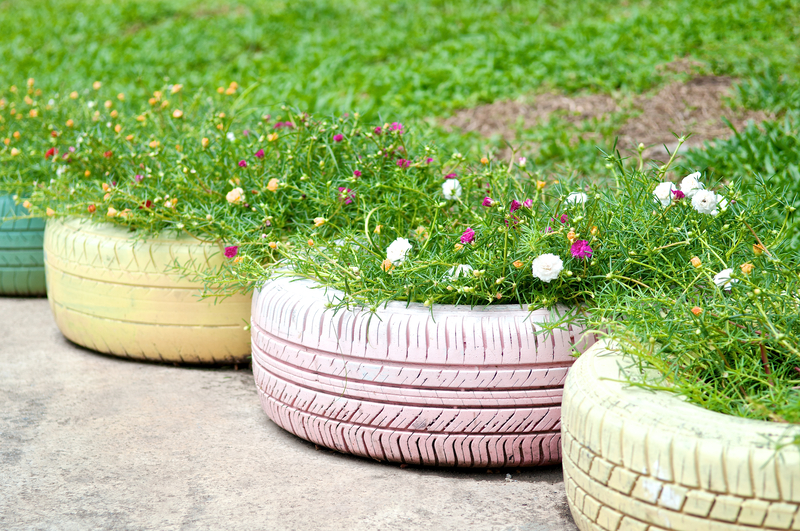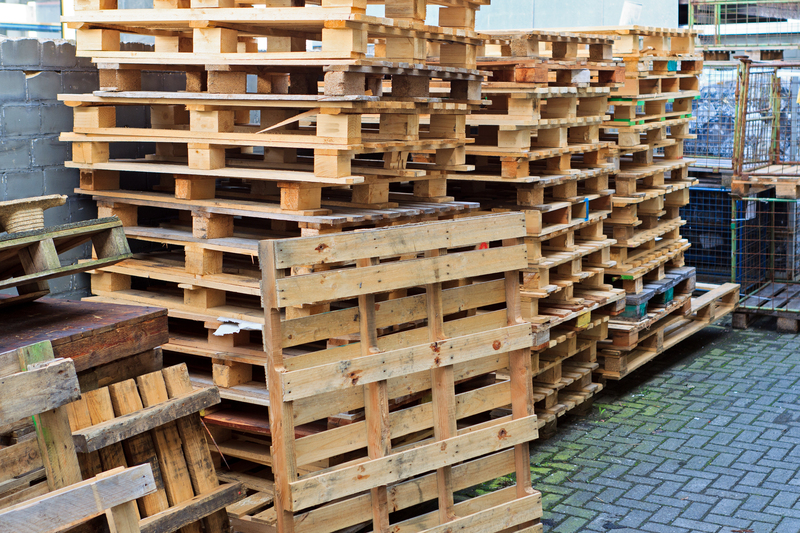Step into Simplicity: Decluttering and Minimalist Living
Is your life feeling cluttered--literally and figuratively? The modern world thrives on busyness, excess, and consumption. However, more people are discovering the transformational benefits of stepping into simplicity through decluttering and minimalist living. If you're seeking a refreshing, peaceful, and intentional lifestyle, you've come to the right place.
What is Minimalist Living?
Minimalist living is a lifestyle philosophy that focuses on living with less, but better. It means intentionally stripping away physical, mental, and emotional excess so you can make space for what truly matters. Far from being about deprivation, minimalism invites us to cherish what we own, value experiences over possessions, and create a life centered on purpose and clarity.
Key Elements of Minimalist Living
- Intentionality: Making deliberate choices about what you own and how you spend your time.
- Freedom: Releasing attachments to material goods in order to enjoy more financial and mental freedom.
- Mindfulness: Paying close attention to what brings real value to your life.
- Quality over Quantity: Investing in fewer, but higher-quality, possessions and experiences.

Why Minimalism and Decluttering Go Hand-in-Hand
The journey toward a simplified life often starts with decluttering. Removing physical clutter paves the way for emotional and mental clarity. By embracing minimalist decluttering, you open your space and mind to tranquility, creativity, and freedom from the stress caused by excess.
Benefits of Decluttering for Simple Living
- Reduces Stress: A tidy and organized environment soothes the mind and improves focus.
- Saves Time: Less stuff means less to clean, repair, organize, and worry about.
- Saves Money: You become more critical about your purchases and avoid unnecessary spending.
- Boosts Wellbeing: Clearing physical clutter often results in increased feelings of contentment and peace.
- Fosters Gratitude: You learn to appreciate what you truly have and let go of what doesn't serve you.
How to Start Your Minimalist Journey
Ready to step into simplicity? Adopting a minimalist lifestyle doesn't have to happen overnight. Here's a structured approach to get you started:
1. Set Clear Intentions
Ask yourself: Why do I want to live simply? Are you seeking relief from overwhelm, a desire to focus more on your passions, or a wish to reduce your environmental impact? Clarifying your reasons will keep you motivated throughout your minimalist journey.
2. Start Small--One Area at a Time
Decluttering your entire life can seem daunting. Begin with a single drawer, shelf, or closet. Once you experience the benefits, tackling other spaces will feel more manageable.
3. Apply the Four-Box Method
Use four boxes labeled as follows:
- Keep: Items you truly need or love.
- Donate/Sell: Items in good condition, but no longer useful to you.
- Recycle: Items that aren't fit for donation but can be recycled properly.
- Trash: Broken, unusable items with no value.
4. Practice the One-In, One-Out Rule
For every new item you bring into your home, let go of one. This simple decluttering rule prevents the buildup of unnecessary possessions and encourages more intentional purchases.
5. Embrace Digital Minimalism
Your living space isn't the only area susceptible to clutter. Digital clutter--think overflowing inboxes, unused apps, disorganized files--can cause as much chaos as physical clutter. Regularly delete what you no longer need and organize what you keep.
Minimalist Living Room: Your Sanctuary of Calm
Transforming your living room is an excellent way to embody minimalist living. Here's how to create a serene, clutter-free space:
- Choose Multi-Functional Furniture: Select pieces that offer storage or can serve multiple purposes.
- Limit Decor: Display only a few meaningful items, such as a favorite piece of art or a cherished memento.
- Mind the Colors: Stick to a calming, neutral palette with a few subtle accents.
- Keep Surfaces Clear: Avoid using tables or shelves as storage spots for mail, keys, or gadgets.
Decluttering Tips for Common Living Room Clutter
- Books: Keep only the ones you love or regularly reference. Donate the rest.
- Magazines & Newspapers: Recycle what you've read, keep only the current issue.
- Cord Management: Use cord organizers or wireless solutions to reduce visual clutter.
- Throw Blankets and Pillows: Limit to what's functional and visually appealing.
Declutter Your Kitchen for Simple, Easy Living
The kitchen, often called the heart of the home, can become a hotspot for clutter. Minimalist kitchen design enhances efficiency and makes meal preparation enjoyable.
Steps to Achieve a Minimalist Kitchen:
- Purge Expired Foods: Go through your pantry and fridge, discarding expired or unused items.
- Streamline Cookware: Keep only essential pots, pans, and utensils. Donate duplicates.
- Clear Countertops: Store small appliances you don't use daily. Prioritize a neat, open workspace.
- Organize Cabinets: Use organizers to avoid stacking and clutter. Store items by frequency of use.
The Benefits of Decluttering and Minimalist Living
Why should you embrace minimalist decluttering? The science--and real-life stories--support this transformative lifestyle. Consider these life-changing advantages:
Healthier Mind and Body
- Less Stress: Orderly spaces promote relaxation and reduce anxiety.
- Better Sleep: A serene, uncluttered bedroom improves sleep quality.
- Healthier Habits: Minimalism encourages mindfulness, which overflows into diet, exercise, and daily routines.
More Freedom and Flexibility
- Easy to Move: Fewer possessions mean moving home is simpler and less costly.
- Travel More Lightly: Spend on experiences rather than things, making it easier to travel or relocate.
Environmental Impact
- Reduced Waste: Minimalists consume less and produce less waste, benefiting the planet.
- Sustainable Choices: Reduced demand for new goods encourages eco-friendly production and consumption.
Financial Benefits
- Reduced Spending: Minimalists buy less, focusing on what is truly necessary and valuable.
- Increased Savings: Extra resources can be directed to experiences, travel, or investments.
Common Challenges in the Minimalist Journey
Embracing simple, minimalist living does come with challenges. Here's how to navigate common obstacles:
Sentimental Attachments
Parting with items we're emotionally attached to is hard. Try taking photos of cherished objects before donating them, or keep a "memory box" with only your most significant sentimental items.
Fear of Needing Things Later
Avoid the "just in case" trap by borrowing, sharing, or renting rarely-used items instead of owning them outright.
Disapproving Friends or Family
Minimalism is a personal journey. Lead by example, communicate your reasons, and don't pressure others to follow suit.
Minimalism at Work and in Your Calendar
Decluttering isn't just about physical stuff. It's also about how you simplify your commitments and relationships. Examine your work environment and social calendar for unnecessary obligations. Learn to say no and prioritize activities that align with your values.
Tips for a Minimalist Work Life
- Declutter Your Desk: Keep only essential tools and a few inspiring items.
- Control Digital Noise: Unsubscribe from irrelevant emails and reduce useless notifications.
- Prioritize Tasks: Focus on what matters most each day; use lists and planners efficiently.
Maintaining a Minimalist Lifestyle
Once you achieve a decluttered, minimalist environment, maintaining it is key to reaping the ongoing benefits:
- Schedule Regular Declutters: Habitually assess belongings and habits--seasonally or monthly.
- Mind Your Motivations: Remind yourself why you chose this path. Return to your intentions when it gets tough.
- Resist Consumer Culture: Be wary of marketing and societal pressure to own the latest gadgets or trends.
Using Minimalism to Unlock Creativity and Purpose
Minimalist living isn't just about reducing clutter--it's about unlocking creativity, focus, and passion. When your physical and emotional space is clear, you can:
- Pursue Your Passions: Spend more time and energy doing what you love, whether it's art, music, travel, or volunteering.
- Strengthen Relationships: With less distraction, you can deepen connections with friends and family.
- Find Inner Peace: Simplicity fosters mindfulness and a greater overall sense of well-being.

Step into Simplicity Today
Imagine walking into a home filled only with items you love and use--a space that feels like a sanctuary, not a storage unit. Minimalist living and decluttering are not about empty rooms or rigid rules; they're about freedom, clarity, and intentional joy.
Begin with small steps. Celebrate each victory. As you step into simplicity, you'll likely find that a minimalist lifestyle enriches every area of your life--home, work, relationships, and even your sense of self.
A simpler life is not out of reach--it's one intentional step, one decluttered space at a time. Are you ready to step into simplicity and transform your life with minimalist living?
Final Thoughts on Decluttering and Minimalist Living
Minimalism is a journey, not a destination. Each item you let go of brings you closer to a life filled with peace, purpose, and fulfillment. By embracing minimalist living and decluttering, you're not just removing what holds you back--you're making space for what moves you forward.
Start today. Step into simplicity, and discover the freedom and joy that come from living with less--and loving it more.